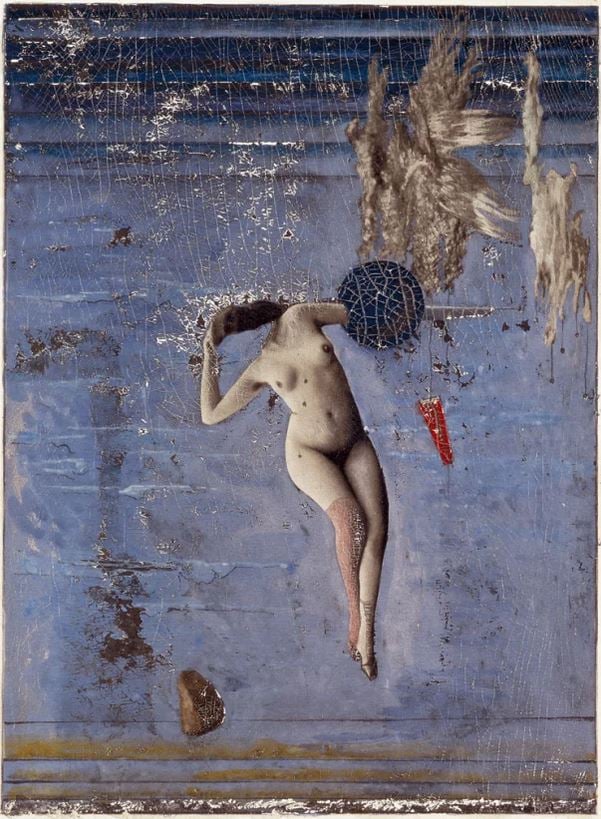Translated from the French by Romain P. A. Delpeuch (December 2021)

La puberté proche…, Max Ernst, 1921
Simone Weil (1909-1943) was a French mystic and philosopher. Extremely sensitive to human suffering and oppression from a very young age, she got involved with revolutionary movements in France and Spain, and took an active part in the Résistance. Born into a Jewish family, she was drawn to Christianity after several spiritual encounters. Many believe she received baptism shortly before she died. Most of her writings, including this poem, were published posthumously. “La porte,” (The Gate) was written in 1941, and published in Poèmes; suivis de Venise sauvée, Paris: Gallimard, 1968
Open the gate to us, the orchards we will see,
We’ll drink their water cold where the moon put its trace.
The road is long and burns, a strangers’ enemy.
We’re clueless as we stray, and cannot find a place.
Flowers we want to see. Upon us, here, is thirst.
Expecting and in woe, before the gate we stand.
If need require, our blows will have this gate outburst.
We push and jostle, but the barrier does withstand.
Languish we must, and wait, and keep staring in vain.
We gaze the gate; it is shut and unmovable.
Our eyes are riveted to it; we weep in pain;
We see it still; the weight of time’s unbearable.
Before us stands the gate; then wherefore should we will?
Better to go away, and to abandon hope.
We’ll never get in. We’ve wearied seeing it still…
The gate, unlocking, so much silence let elope
That neither orchards nor one flower did show up;
Only the space immense where dwell the void and light
Was present suddenly throughout, filled the heart up,
And cleansed the eyes that dust almost deprived of sight.
La Porte
Ouvrez-nous donc la porte et nous verrons les vergers,
Nous boirons leur eau froide où la lune a mis sa trace.
La longue route brûle ennemie aux étrangers.
Nous errons sans savoir et ne trouvons nulle place.
Nous voulons voir des fleurs. Ici la soif est sur nous.
Attendant et souffrant, nous voici devant la porte.
S’il le faut nous romprons cette porte avec nos coups.
Nous pressons et poussons, mais la barrière est trop forte.
Il faut languir, attendre et regarder vainement.
Nous regardons la porte; elle est close, inébranlable.
Nous y fixons nos yeux; nous pleurons sous le tourment;
Nous la voyons toujours; le poids du temps nous accable.
La porte est devant nous; que nous sert-il de vouloir?
Il vaut mieux s’en aller abandonnant l’espérance.
Nous n’entrerons jamais. Nous sommes las de la voir…
La porte en s’ouvrant laissa passer tant de silence
Que ni les vergers ne sont parus ni nulle fleur;
Seul l’espace immense où sont le vide et la lumière
Fut soudain présent de part en part, combla le cœur,
Et lava les yeux presque aveugles sous la poussière.
Table of Contents
Romain P. A. Delpeuch was born and bred in south-west France where he still lives.
Follow NER on Twitter @NERIconoclast
- Like
- Digg
- Del
- Tumblr
- VKontakte
- Buffer
- Love This
- Odnoklassniki
- Meneame
- Blogger
- Amazon
- Yahoo Mail
- Gmail
- AOL
- Newsvine
- HackerNews
- Evernote
- MySpace
- Mail.ru
- Viadeo
- Line
- Comments
- Yummly
- SMS
- Viber
- Telegram
- Subscribe
- Skype
- Facebook Messenger
- Kakao
- LiveJournal
- Yammer
- Edgar
- Fintel
- Mix
- Instapaper
- Copy Link








